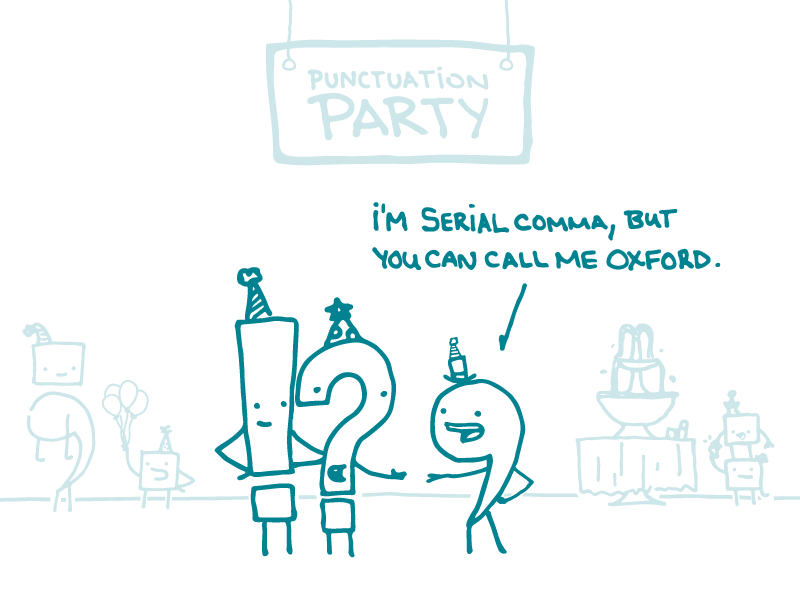
This week, we’re answering one of the great grammar questions of our time: to Oxford comma, or not to Oxford comma?
This tiny punctuation mark, also called the serial comma, comes before the “and” or “or” in a list of 3 or more things. Simple enough, right? Not so fast, dear readers!
The Oxford comma may seem straightforward, but it gets grammar nerds up in arms. Different style guides either take it (Chicago) or leave it (we’re looking at you, AP Stylebook). Americans use it more than Brits. It even has its own pop song (warning: explicit lyrics).
Fortunately, we’re here to put an end to this controversy and say unabashedly that the answer is clear: always use the Oxford comma — especially in plain language writing.
Why, you ask? To avoid (often hilarious) misunderstandings, of course!
You may have heard the classic, and likely fake, example of a book dedicated to “my parents, Ayn Rand and God.” Without the Oxford comma, the author is stuck with an atheist and a deity for a mom and dad. They do make a good comedic duo, but clearly that’s not the intended meaning.
And that’s nothing compared to the fate of poor Merle Haggard. A newspaper article describing a documentary about the famous country singer skipped the Oxford comma and spiced up his life story: “Among those interviewed were his two ex-wives, Kris Kristofferson and Robert Duvall.”
Still not convinced of the Oxford comma’s super powers? Then consider the 2017 court case decided on the absence of a single Oxford comma in a Maine state law.
So keep those Oxford commas handy — they’ll make your language plain, clean, and clear!
The bottom line: When writing lists in plain language, always use the Oxford comma.
Tweet about it: In #HealthLit and in life, @CommunicateHlth loves the #OxfordComma. Find out why: http://bit.ly/2FmTYnw
Browse recent posts